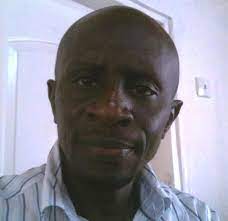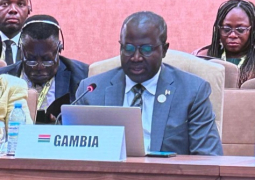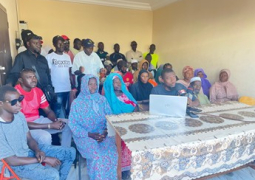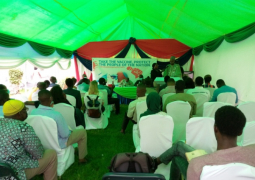
“This has also raised our confidence in our judiciary. It has confirmed the independence of our judiciary. The judge has executed his function as a judge impartially and professionally. It’s also precedent for other crimes of international nature that should be brought forward to our courts of law like the other human rights violations that have been committed during the Jammeh’s era.”
The Victim Centre chair was speaking to The Point yesterday on his reaction to the judgement on former junta member Yankuba Touray, and one-time minister of Local Government and Lands.
Mr. Touray was on Wednesday sentenced to death by hanging by Justice Ebrima Jaiteh of the High Court in Banjul for the murder of Ousman Koro Ceesay in 1995.
Kijera further added: “We are not rejoicing because Yankuba Touray has been sentenced to death. However, we are rejoicing because of the confidence that has been restored in our justice system. This has also reaffirmed the commitment of our judiciary that justice would be delivered at the end of the day. We are happy that justice has been delivered and I am quite sure that the Ousman Koro Ceesay families would have a closure with all they have gone through; the pain and suffering they have gone through.”
“For us, it doesn’t matter whether he has been sentenced to death by hanging or life imprisonment. What’s important is that Yankuba Touray has been held accountable for the murder he has committed on the person of Ousman Koro Ceesay. We have seen that at the end of day, he has faced the full force of the law. What matters to us more is the accountability process he has gone through,” he posited.
Yankuba Touray’s conviction, he added, also sends a strong message to his accomplices in the person of Edward Singhateh, Peter Singhateh and others that took part in the murder of Ousman Koro Ceesay.
“It’s a strong message that has been delivered with regard to the judgement of the high court. It set a precedence that others will follow in due course that they will all have their day in court. It’s just a matter of time that we are all waiting for the final report and recommendation of the country’s Truth Commission.”
Kijera expressed optimism that the government would do justice to implement the recommendations of the TRRC with a view to enabling all those who bear the greater responsibilities of the atrocities committed during the Jammeh era are brought to justice. “So, Peter and others would certainly have their day in court including Yahya Jammeh. He has to expect that in the not so distant future that he will have his day in court.”
“There’s no safe haven for crimes against humanity, torture among others anywhere in the world. Jammeh can be fugitive from justice but he can’t hide from facing the accountability mechanism that would be put in place to pursue him to come and face his victims and to come up with an answer to alleged human rights atrocities that have been committed by (Jammeh) and his henchmen.”
“We have seen what happened to Hissène Habré and I think it’s a lesson that all other African heads of state should learn that this is always life after presidency. It all depends on how you comfort yourself during your era of leadership.”
Read Other Articles In Headlines

Gambia calls for implementation of Doha Programme of Action for LDCs
Jan 23, 2024, 11:23 AM




